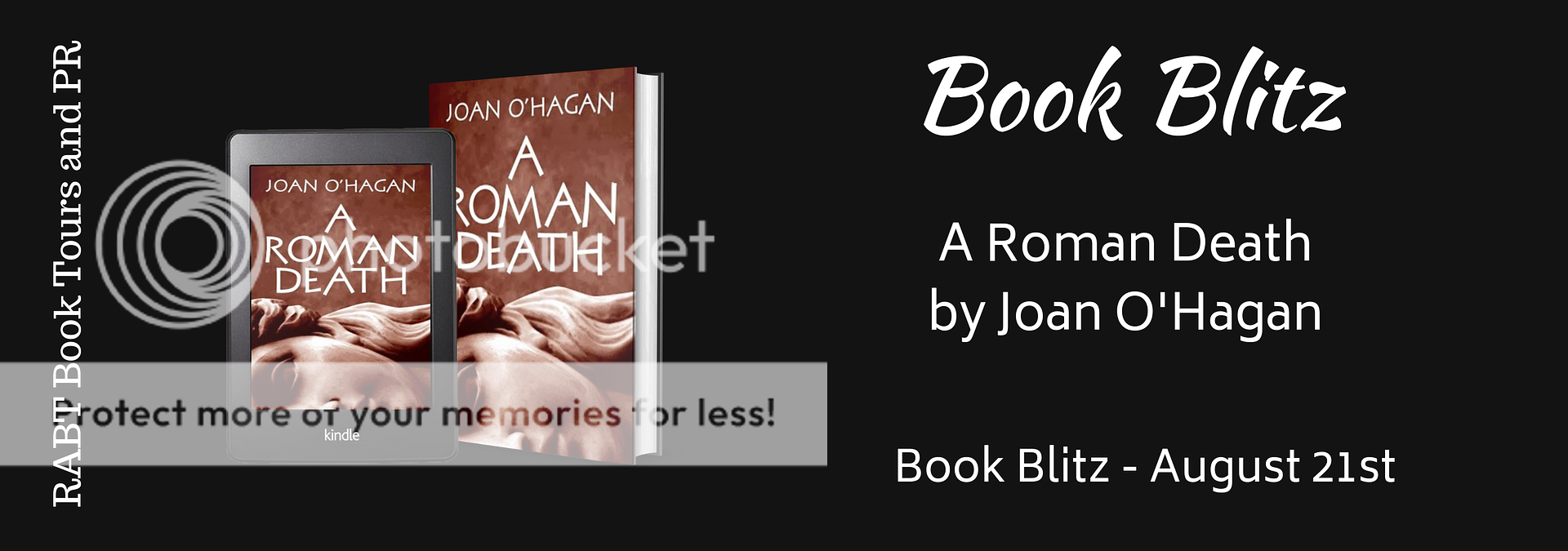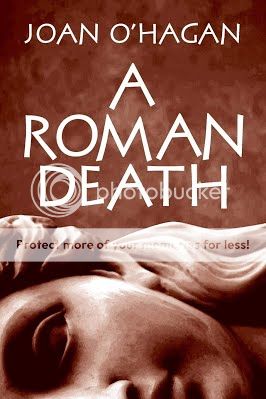Historical Thriller
Publisher: Black Quill Press
Skullduggery and scheming in Ancient Rome on the eve of Caesar's assassination.
Historical thriller set in Ancient Rome. In 45 BC, Julius Caesar is at the height of his power. Lucius Scaurus, the young, good-looking fiancé of a high-society girl is poisoned at the couple's own pre-wedding banquet. In the trial that follows, Roman society is shocked when the girl's mother, Helvia, is accused of not only of murder, but of incest. Cicero comes to Helvia's defence, but the killer's identity remains a mystery until the final twist – or two.
Praise for A Roman Death:
‘Poison, poetry (both high-minded and salacious), marriage for money, marriage for love, gang-rape, cowardice in battle, scheming slaves, conniving aristocrats, malicious matrons casting magical curses, and (as if all this were not enough) a previously unknown oration by Cicero - there's so much going on, so expertly conveyed ...’ — Steven Saylor
‘An absorbing story, with fully drawn characters, a fascinating place and period, all given vibrant life in the author’s best work so far.’ — Kirkus Review
‘An original setting, carefully researched and vividly portrayed.’ — The Times Literary Supplement
‘Religious beliefs and superstition in the ancient world play a key part in Joan O’Hagan’s novel about mayhem in Rome … The identity of the killer, in this excellent classical puzzle that is also a classic whodunit, is revealed in a splendidly contrived shock ending.’ — Gerald Kaufman, The Listener
‘Who put the poison in Lucius’s wine, what truth in the scabrous accusations? Cicero for the defence; an unusual treat, don’t miss it.’ — Christopher Wordsworth, The Observer
‘The contexts are all smartly timed … beware of wicked terminal twists.’ — Stephen Walsh, The Oxford Times
‘In this novel, excellent as a mystery and as a reconstruction of the life of upper-class Rome in 45–44 BC, O’Hagan tells a story of murder, magic, love, greed and intrigue, the plot of which could have come right out of an oration of Cicero.’ — Fred Mench, Fictional Rome: Authors & Reviews.
Excerpt
A ROMAN DEATH - Excerpt: pp 184-7
‘Oh judges, I tell you that this woman — intelligent, wilful and passionate — is far from being the conventional and trustworthy Roman matron she appears to the world. I have already underlined her implacable opposition to her husband’s wishes. Not for her to conform, oh no! Nor in other ways does she conform. Not for Helvia the devotion to her household gods, not for her the religious observance that is the duty of women and the strength of our society. I regret to tell you, gentlemen, that Helvia is a devotee of that Egyptian goddess, that Isis, whose worship has so many times been banned from our city — was forbidden, indeed, as recently as four years ago.’
The advocate paused, glancing at the judges, singling out L. Aemilius Paullus in particular. ‘You will remember how one of your numbers, when Consul, once tore off his toga and drove an axe through the temple doors to set an example to the workmen who had been told to demolish the Iseum. Anyone will applaud such an example, who is a true Roman and faithful to the gods who protect our state.’
The speaker could ignore the waves of muted protest rising from angry spectators now, so many of whom were humble folk. None of the judges, all coming from that comfortably enshrined noble or knightly class, upheld such worship. All the same, he was on delicate ground. Caesar was in power and Caesar had reinstated Isis.
‘Imported worship which deals not in solemn rites owed to traditional gods, but in mysteries and frenzies and incited enthusiasms,’ rumbled the advocate ominously. ‘Why would a lady of Helvia’s class and background have recourse to such practices?
‘I do not ask you what can happen in the temple of linenclad Isis, gentlemen,’ he went on ironically. ‘I do not care to ask you — nor, judges, would you particularly wish to know. But we do know that in other towns the shrines of that goddess are generally not too far from the brothels, and we are content to remain in ignorance of those who give their devotion to bulls and monkeys and reptiles and birds of all sorts, and,’ Messalla paused delicately, his face a study in lofty distaste, ‘those who are said to indulge in practices erotic or magical …
‘Helvia’s resort to Isis worship, to magic, is alien to women of her status. Who can trust a woman who covertly enlists the forces of darkness and evil? She who does so is clearly capable of any deed. But this is not all …’
Messalla paused again.
‘As we all know, the great bulwark of our community, its whole strength, is the family, by reason of its natural and human ties. As we all know, the greatest merit of all from the family is this union of man and woman for the procreation of children.
‘I do not argue that Helvia was not a devoted mother.’ Another pause. Messalla looked round for absolute quiet now and waited until he got it. ‘I do not argue that, iudices. I argue only that Helvia was, as well, too devoted a sister. This woman, married to the honest Fufidius for almost twenty years now, since she was fifteen years old, has for long had a most delightful relationship with her brother. With her brother Cinna, the poet, who is now also Tribune. I regret, however, that it is a most unnatural relationship, as well. I speak, gentlemen, of an incestuous relationship.’
A long collective sigh rose from the audience. This was better than any theatre. Helvia sat as if turned to stone, her mature beauty etched in the band of light that fell on the bench. Aghast, Fufidius rose to his feet, but was motioned down by Cicero.
‘This relationship may have been suspected by a few, but it was well hidden by the incestuous pair. As you know, slaves cannot testify against their masters except in one instance — in a case of incest...
About the Author

Joan O'Hagan's other books include Incline and Fall (Angus & Robertson), Death and a Madonna (Macmillan), Against the Grain (Macmillan) and Jerome & His Women (Black Quill Press).
Contact Links
Purchase Links














No comments:
Post a Comment